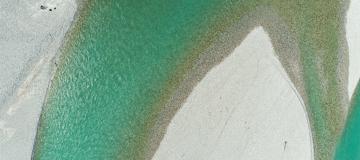
Looking at rivers in a data rich era
Speaker: Dr. Simone Bizzi (Department of Geosciences - University of Padova) - Tuesday, 29th March – 4:30 PM | Aula Arduino
29.03.2022
For decades geomorphologists have asked what drives the fundamental difference in river functioning between single-thread meandering channel and multi-thread systems? The variety of existing river channel patterns and their functioning are nicely summarized in the river classification schemes which tells us that river forms and patterns are generated by specific drivers, namely: channel gradient, amount of sediment supply, and grain size (caliber) of the sediment supply. The link between sediment transport and river morphology is well established from a conceptual point of view but poorly characterized from a quantitative point of view. Moreover, fluvial sediment transport normally is measured and studied according to operational principles that essentially simulate the movement of single grains. That may explain because the connection between transport and alluvial morphology is so poorly developed. In this context, emerging remote sensing technology are transforming geomorphology from a data poor science to a data rich one with profound consequences for science and management. In this talk I will show examples of how new geomorphic datasets from satellites, drones and smart sensors are providing new mapping and modelling capacity regarding the study of the functioning of river systems and how this knowledge can be essential to support the challenges posed by modern river and water resource management with examples from Italy, Albania, Asia and Australia.





